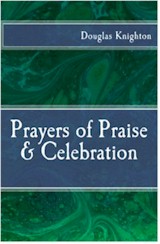A famous hymn opens with the words, “What various hindrances we meet, in coming to the mercy seat.” Farther on the hymn gives some indication of why we find it so hard to pray:
Restraining prayer, we cease to fight;
Prayer makes the Christian armor bright.
And Satan trembles when he sees
The weakest saint upon his knees.
Satan knows full well how prayer brings God’s kingdom to prevail in devastating power against his kingdom of darkness. Therefore, it is no wonder that he has devised so many lies to make us think prayer is futile, and he tempts us to let some other activity—any other activity!—crowd out time and energy for praying. Dr. David Hubbard, in his book, The Problem With Prayer Is …, provides much help in showing how God’s Word clears away these hindrances so we can enjoy our rightful privilege of prayer.
One of my particular problems with prayer was how to be sure that I have enough faith to receive answers. Jesus said in Matthew 21:22, “And whatever you ask in prayer, you will receive, if you have faith.” I would ask, How can I have faith, when I tack on to my requests, “If it be your will”? Telling God he doesn’t have to answer my prayer if he doesn’t want to might seem to show appropriate yieldedness, but it didn’t encourage me to think that I was praying the prayer of faith. If I really believed God would do what I was asking him to do, then I shouldn’t be telling him that he didn’t need to answer my prayer if he didn’t want to do so. Nevertheless, Jesus did add the words, “If it be your will,” to the prayer he uttered in Gethsemane (Matthew 26:39).
But then it came to me that these words were never supposed to mean that God didn’t have to answer a prayer if he didn’t want to answer it. Romans 8:32 showed me that since God had delivered up his own Son for me, therefore he was absolutely committed to give me all things. Since this was so, there was no possibility that God would ever refuse my request. He may not answer my request at the time when I feel it would be best for me, but the time he chooses will be so much better. He may not give me just what I ask, but if not, then he will give me something much better. Far from ever saying no to my requests, God will often do exceeding abundantly above all that I could ask or think (Ephesians 3:20). He promised that if I called upon him, he would answer and show me great and mighty things which I knew not (Jeremiah 33:3). So, to pray in faith means to be confident that as God has promised me all things in Christ, so he will never say “No” to any prayer.
But there was still the problem of wondering whether I believed God enough when I prayed. I have often tried to assess whether I had enough faith to have a prayer answered, but I could never be sure. And when we doubt whether we have enough faith, then whatever faith we had has already been destroyed. But then it came to me that Jesus had said that a tiny little mustard seed of faith would so adequately fulfill the requirements to have faith when I pray that, as a result, “mountains” would be moved (Matthew 17:20). By talking about a “mustard seed” of faith, Jesus was talking about faith that was far short of being perfect. So never again did I have to doubt whether I had enough faith and so wind up having no faith at all as I prayed. Surely I can always muster a “mustard seed” of faith when I consider the great promises (e.g. Romans 8:32) that God has made.
Now I think I understand better what the hymn writer meant in saying, “And Satan trembles when he sees the weakest saint upon his knees.”
Daniel P. Fuller
August 1973



Discussion
No comments yet.